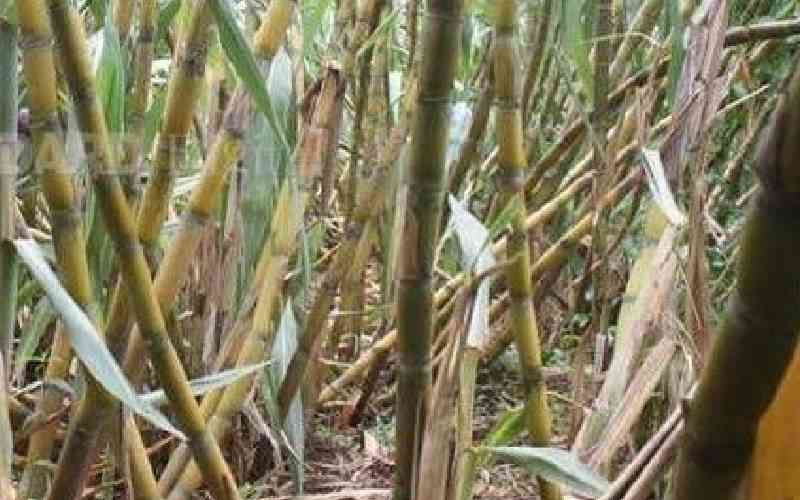The woes of local sugar millers, small scale sugar farmers and consumers is no longer news in Kenya. Nearly every year, they face recurrent problems and this has been the case for decades. Yet the industry supports over nine million people across the country.
In spite of the fact that cane farmers, local sugar millers, the wholesalers and consumers do cite specific problems they face in the sector, such problems are somehow inter-connected.
They include, issues relating to infrastructure, pricing, taxation, regulations, importation and distribution of sugar. And the Government is expected to play a major role in ensuring cane farmers have fertilisers as well as accessible roads from farms to factories. It is also expected to levy reasonable taxes to allow the viability of the industry. In addition, the government is expected to enforce laws and regulations governing sugar production, distribution, storage and importation.
In fact, a greater functional responsibility of the government in the sugar sector is to prevent illegal importation of cheap sugar into the country, yet it has largely failed to seal the loopholes thereby facilitating the continued entry into Kenya of cheap sugar.
This has been the case despite the existence of safeguard measures for our domestic industries that need international protection until they become stable. The loser has been the local millers.
Interestingly, those involved in the cheap sugar import are cartels comprising unscrupulous businessmen working in cahoots with high-ranking government officials, leading politicians as well as senior civil servants.
The country is awash with reports of billions of ill-gotten money by cartels controlling sugar import and sale in the local market. Such cartels normally evade tax payment to KRA. It is the duty of the government to ensure that applicable laws and regulations are strictly applied to cushion the local sugar millers from unscrupulous dealers and importers. Further, the government must take the blame for its failure to review the taxation structure of the sugar industry to enable the local consumers access the commodity at a reasonable price.
It is the duty of the government to ensure that applicable laws and regulations are strictly applied to cushion the local sugar millers from unscrupulous dealers and importers. Further, the government must take the blame for its failure to review the taxation structure of the sugar industry to enable the local consumers access the commodity at reasonable price.
It must be pointed out that the government stands accused of delaying the restructuring or divestiture of the sugar sector. This could be partly due to socio-economic interests as well as corrupt dealings of high ranking officials who are part of the cartel controlling sugar production, importation and distribution. This cartel is capable of causing artificial sugar shortages (due to hoarding) and thereby leading to exorbitant sugar prices in the local market.
It is therefore the responsibility of the government of the day to ensure that the Kenyan sugar sector which contributes 15 per cent of agricultural GDP, provides income to over 250,000 small scale farmers is protected and made sustainable.
It is a plain fact that people from Western, Nyanza and Coast regions substantially depend on the sugar industry for their livelihood.
The industry offers employment to thousands of youths from these regions. Thus, messing up the sugar sector for purposes of gaining economic rent by the high and mighty is therefore an act of economic sabotage.
 The Standard Group Plc is a
multi-media organization with investments in media platforms spanning newspaper
print operations, television, radio broadcasting, digital and online services. The
Standard Group is recognized as a leading multi-media house in Kenya with a key
influence in matters of national and international interest.
The Standard Group Plc is a
multi-media organization with investments in media platforms spanning newspaper
print operations, television, radio broadcasting, digital and online services. The
Standard Group is recognized as a leading multi-media house in Kenya with a key
influence in matters of national and international interest.
 The Standard Group Plc is a
multi-media organization with investments in media platforms spanning newspaper
print operations, television, radio broadcasting, digital and online services. The
Standard Group is recognized as a leading multi-media house in Kenya with a key
influence in matters of national and international interest.
The Standard Group Plc is a
multi-media organization with investments in media platforms spanning newspaper
print operations, television, radio broadcasting, digital and online services. The
Standard Group is recognized as a leading multi-media house in Kenya with a key
influence in matters of national and international interest.









